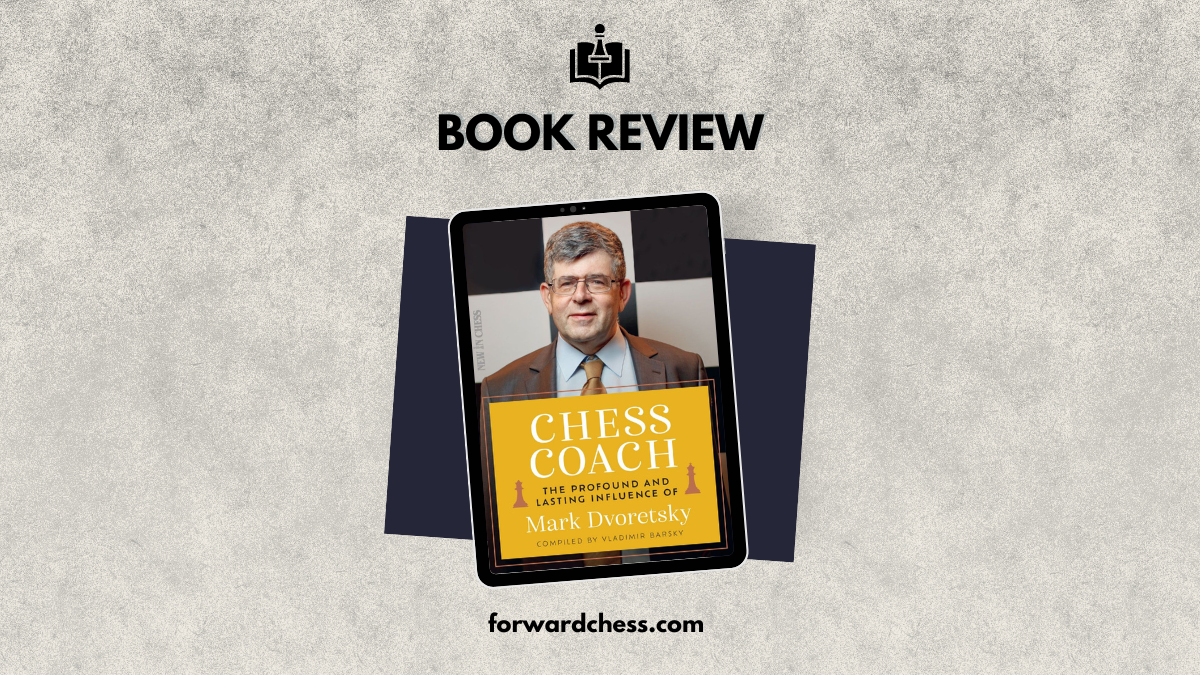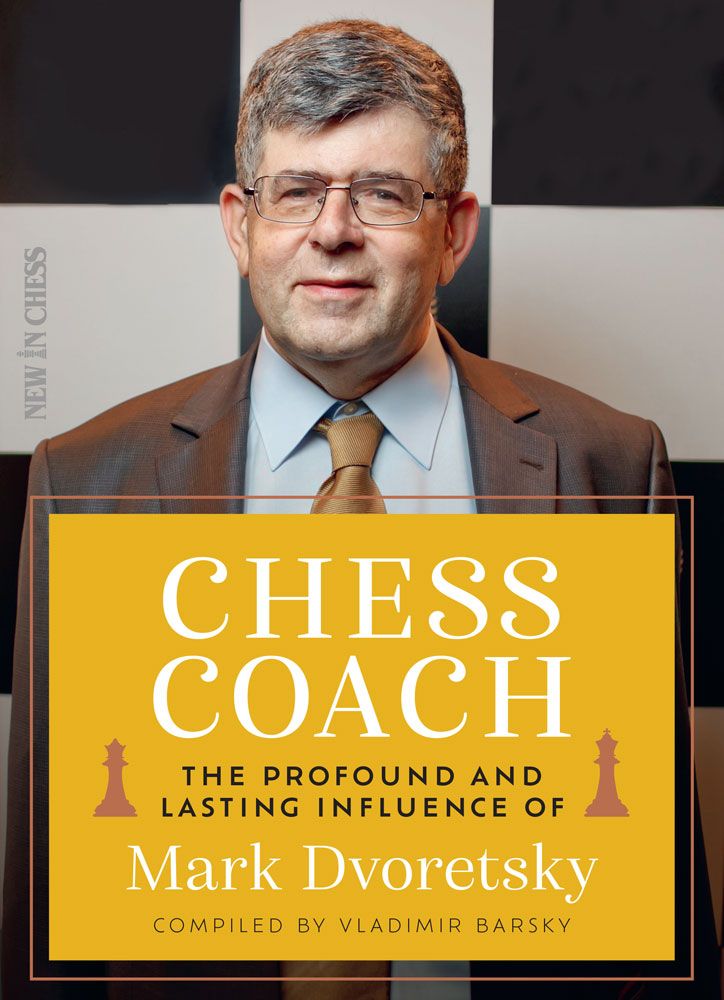“Being a grandmaster-level practitioner, Dvoretsky found his true calling in research and teaching.” – Alexander Nikitin.
The late IM Mark Dvoretsky was widely considered to be the greatest chess coach during his lifetime, and it’s therefore appropriate that this biography should simply be called Chess Coach.

Although of grandmaster strength, he never got the title as he started coaching from a relatively young age. He was realistic about his strengths and concluded early in his career that he was not destined to fight for the world championship. While discussing his habit of making impulsive and hasty decisions at the board, he writes:
“Unfortunately, only after becoming a coach did I learn to focus on such shortcomings. And in those days, although I saw my weaknesses, I did not make serious attempts to fight them, and as a result failed to realize my potential as a practical player… I don’t even want to remember how many important points were lost because of it!”
Hence, he focused on producing world-class players, notably Valeri Chekhov, Sergei Dolmatov, Alexey Dreev and Arthur Yusupov. In particular, he and Yusupov also worked together in coaching and co-authored a series of high-quality books.

Yusupov movingly writes:
“In the autumn of 1975, I began studying with Mark… Each training session enriched me with valuable experience, and hard work quickly led to an increase in my chess strength. However, I learned not only chess from Mark, but also adopted many human and cultural values, expanding my horizons. Dvoretsky was not formally a dissident, but the totalitarian system was alien to his free spirit. He explained the real world to me and helped me understand the immorality and absurdity of the communist state.
We were bound by forty years of cooperation and a long friendship. For me, he was not only a coach and second, but also the most important chess teacher in my life. It is to him that I owe my biggest chess successes…
I didn’t get to talk to him. I had just bought a ticket to Moscow and received a visa, when the news of his death came. I really wanted to see Mark again and knew perfectly well that we were talking about only a few days. At least I managed to honour him in the Central Chess House. It was very touching! Many participants of the Tal Memorial came to say goodbye. Everyone wanted to say a few words…”
Of his many books, Dvoretsky is most famous for his endgame manual. Garry Kasparov writes:
“It seems to me that Dvoretsky’s most striking achievements are in the study of endings: in minor-piece positions, he was able to more clearly demonstrate the advantages and merits of his methods. Not without reason, at the beginning of the 21st century, my favourite chess book was the brilliant Dvoretsky’s Endgame Manual, which has already gone through four English and two Russian editions!”
Chess Coach is an English translation of the 2018 Russian edition with some minor changes, and it has been compiled by IM Vladimir Barsky, a close friend of Dvoretsky.
The book is split into four parts as shown in the picture below.

The first part consists of contributions and reminiscences from many chess players and friends of Dvoretsky, including two moving tributes from his wife and son. While there is some inevitable overlap in some of these contributions, they provide a good picture of Dvoretsky the chess player, coach and, perhaps most importantly, the person.
Part 2 illustrates Dvoretsky’s strength as a practical player. Some of the games are annotated by him, while and others are annotated by his friends and other players. Some corrections are included that update the initial analysis, but these additions don’t intrude into the narrative too much.
Part 3 briefly discusses endgame studies and includes contributions from GM Jan Timman and IM Yochanan Afek. Timman writes:
“Mark Dvoretsky was a great coach and analyst. During my match with Yusupov, he helped my opponent, but this did not affect our good relations in any way. I liked the thoroughness with which he approached the analysis of the position. I especially remember our analytical dispute in 1986 in New In Chess Magazine. Few could be a worthy opponent in that discussion. Mark was a very witty man and was very fond of chess…”
Finally, Part 4 contains some articles and interviews by Dvoretsky, and it includes some further games and exercises. The book also includes a fine collection of photos.
Two examples from the book are given below, with annotations from the book.
In conclusion, this is a fine book and a fitting tribute to an outstanding chess coach. The book can be recommended to players of all levels. It’s entirely appropriate to end the review by quoting his wife Inna:
“He gave everything he could to chess.”
- 1000 Published books on Forward Chess - November 15, 2024
- Book Review: A Guide To Chess Improvement - September 9, 2024
- Review: Chess Coach by Vladimir Barsky - August 26, 2024

